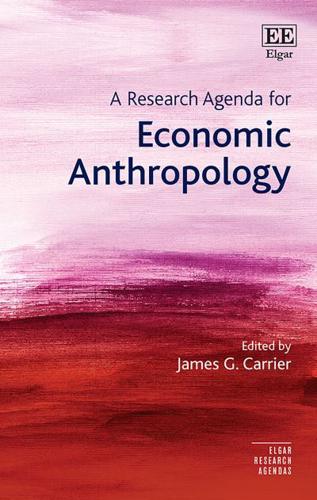Publisher's Synopsis
Elgar Research Agendas outline the future of research in a given area. Leading scholars are given the space to explore their subject in provocative ways, and map out the potential directions of travel. They are relevant but also visionary.
Since the financial crisis of 2008, the anthropological study of economic activity has profoundly changed. A Research Agenda for Economic Anthropology poses new questions for anthropologists about the post-recession world, interrogating common social and political assumptions and stimulating innovative directions for research in economic anthropology.
Employing a broad range of intellectual orientations, this comprehensive book tackles the most pressing developments in economic anthropology. The stimulating and thought-provoking chapters engage with the major features of modern economies, including inequality, debt, financialisation, neoliberalism and the ethics of economic practice, as well as with the effects of social mobilisation and activism. The contributors shed light on previously overlooked topics, reassess familiar subjects that need a fresh approach and share their own predilections concerning the modern economic world.
With contributors ranging from senior academics to those early in their career, this work is critical reading for any anthropologist concerned with the economy and economic activity. Those searching for novel questions or for a sense of the direction of the discipline will particularly benefit from this book's broad, inquisitive approach. Economic sociologists and geographers will also gain from the comprehensive coverage of the many facets of modern economies.
'The chapters in James Carrier's provocative new collection give us stimulating ideas that set us well on the way to a new kind of economic anthropology. Anybody who finds themselves simultaneously fascinated and yet puzzled by what seems to be the ever more ''economized'' kind of society we live in will find much to attract them in these wide-ranging pages. And this won't just be anthropologists (or broad-minded economists), but students old and young, some seeking a new take on an old issue - markets and the state, inequality, or ethical action; others instead urged to reach toward new challenges - expanding our ideas of ''management'', thinking about resources along a time dimension, or reflecting on how politics is expressed in the language of finance. And there is much more. The opposite of a comprehensive ''wrapping-up'' exercise, this lively collection provides us with a distinct set of starting points that take us into exciting new fields within, and well beyond, economic anthropology. Lively, challenging and rewarding reading.'
- Gavin Smith, University of Toronto, Canada and the National University of Ireland








